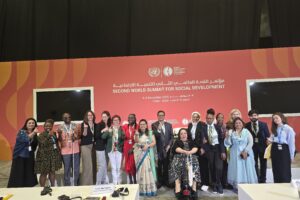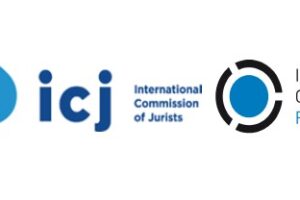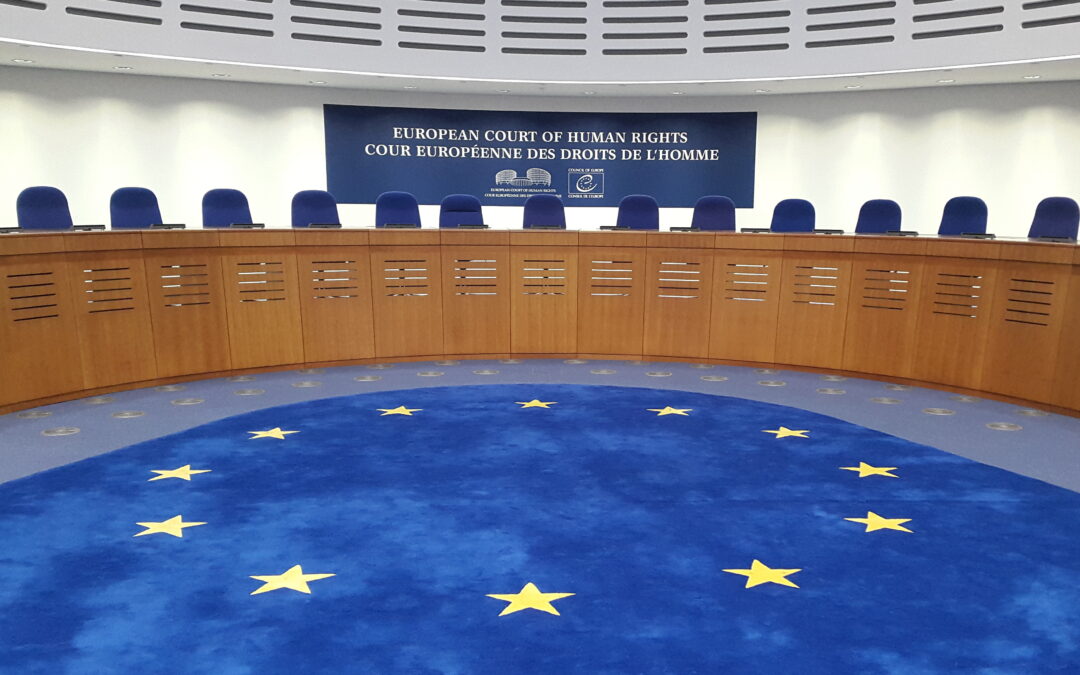
Sep 14, 2020 | Advocacy, Cases, Legal submissions
The ICJ and ECRE intervened today before the Grand Chamber of the European Court of Human Rights in the case of the extradition of a Kyrgyz national of Uzbek ethnicity back to his country of origin where he would be at risk of torture or other forms of ill-treatment .
In their submissions, the ICJ and the European Council on Refugees and Exiles (ECRE) analysed thenon-refoulement obligations of the Russian Federation under international human rights law in relation to the consideration of evidence to assess the substantial grounds to believe that a concerned person will face real risk of a serious human rights violation; and the use of diplomatic assurances purportedly to protect against torture and other serious human rights violations in light of international law.
The two NGOs also provided the Court with an update on the legal framework governing extraditions from the Russian Federation to Central Asian States, in particular Kyrgyzstan, as well as Russia’s extradition practice. They concluded that the analysis of the law and practice revealed a number of critical human rights deficits.
They submitted that the lack of respect for the procedural aspect of the principle of non-refoulement, the consequent ineffectiveness of domestic remedies in this regard, in the Russian Federation, and the abysmal record of Kyrgyzstan in upholding its obligation to respect and protect the prohibition of torture or other ill-treatment mean that extraditions from the Russian Federation to Kyrgyzstan entail a high risk of violations of both substantive and procedural aspects of the principle of non-refoulement.
These submissions are an update of the third party intervention submitted by the ICJ before the Chamber of the European Court of Human Rights on 22 September 2016. The Chamber had ruled that no risk of breach of the principle of non-refoulement existed in the case but the judgment is now subject to the review of the Grand Chamber.
ECtHR-TK and others v Russia-GC-ICJECRE-Final (download the third party intervention)

Jul 28, 2020 | Advocacy, Cases, Legal submissions, News
The ICJ intervened today in the case of the potential surveillance by Polish secret services of Mikołaj Pietrzak, lawyer and chair of the Warsaw Bar Association, Dominika Bychawska-Siniarska et Barbara Grabowska-Moroz of the Helsinki Foundation of Human Rights, and Wojciech Klicki and Katarzyna Szymielewicz of the foundation Panoptykon.
The five applicants applied to the European Court of Human Rights claiming a violation of their rights to privacy and to an effective remedy because the system of secret surveillance and collection of metadata created by the Law amending the Law of the Police of 15 January 2016 and the Anti-Terrorism Law of 16 June 2016 does not provide sufficient guarantees for this rights’ protection.
In its third party intervention, the ICJ addressed (1) the application of the principles of prescription by law, necessity and proportionality, in circumstances when mass and targeted surveillance interferes with the right to respect for private life under Article 8 ECHR, in particular when it affects lawyers and human rights defenders; (2) the obligations of States under Article 8 and 6 ECHR to ensure respect for the confidentiality of lawyer-client relations and the principle of legal professional privilege.
The ICJ argued that secret surveillance, in particular where it interferes with the confidentiality of communications of lawyers and human rights defenders, and endangers lawyer-client privilege protected under Articles 8 and 6 ECHR, should be subject to specific safeguards and to particularly strict scrutiny of its necessity and proportionality.
The third party intervention can be found here: PIetrzak&HF_v_Poland-AmicusCuriae-ECtHR-Cases-2020-ENG
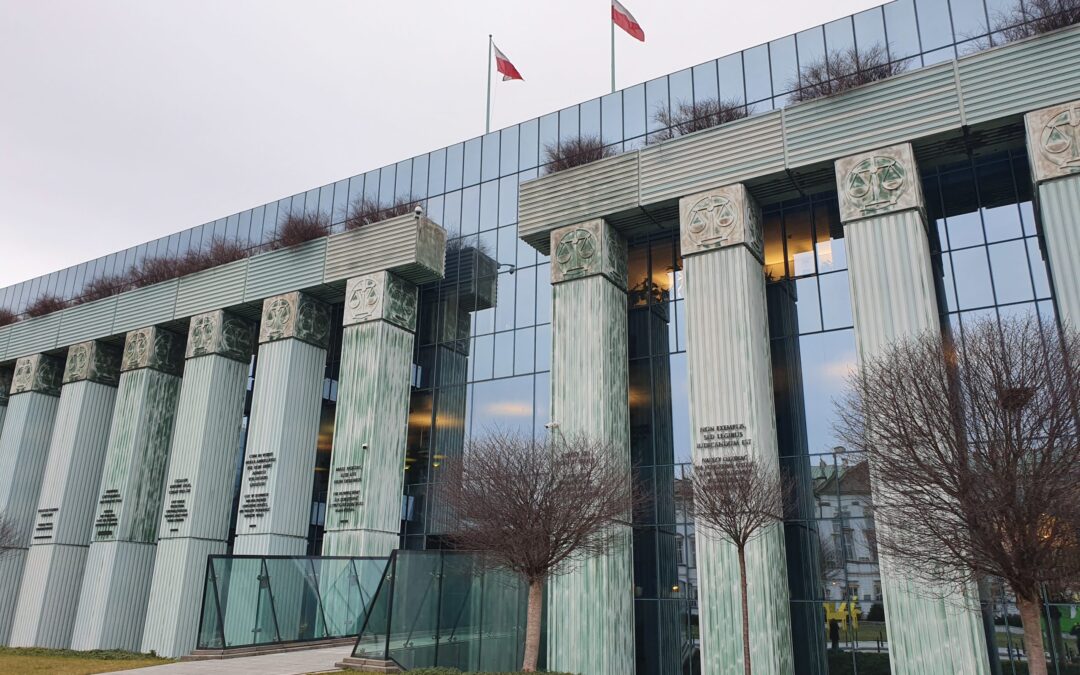
Jul 22, 2020 | Advocacy, Cases, Legal submissions, News
The ICJ and Amnesty International have submitted a joint third party intervention before the European Court of Human Rights in the case of Judges Mariusz Broda and Alina Bojara.
The case concerns the premature termination of their mandates as vice-presidents of the regional tribunal of Kielce in Poland. The two judges, that had been appointed to six-year terms in 2014, had their position revoked by the Minister of Justice in 2018.
The revocation was based on article 17.1 of the Law of 12 July 2017 modifying the Law on the Judicial System. This provision, presented and approved by the ruling Law and Justice Party (PiS), gave the Minister of Justice the power to revoke courts’ presidents and vice-presidents without justified grounds and with no possibility of appeal.
The two judges applied to the European Court of Human Rights alleging that they had been denied access to a tribunal to challenge the termination of their mandate .
In their third party intervention, the ICJ and Amnesty International analyze international standards on judicial independence, including as regards the role court presidents and vice-presidents, and the consequences of these standards for the right of access to court under Article 6.1 ECHR. The intervention also analyses the recent legislative and policy developments that have seriously undermined the independence of the Polish judiciary.
Read the full intervention here: Broda_v_Poland-AmicusCuriae-ICJ&AI-Cases-2020-ENG.

Dec 10, 2019 | News
Today’s decision from the European Court of Human Rights in the case of Turkish human rights defender Osman Kavala must be immediately complied with by releasing him from detention, the International Bar Association Human Rights Institute (IBAHRI) and the ICJ said today.
In the case of Kavala v Turkey, the European Court of Human Rights held that the detention of Mr Kavala, in connection with his role in the Gezi Park protests of 2013, violated the right to liberty (Article 5.1) and the right to a speedy judicial review of detention (Article 5.4) under the European Convention on Human Rights (ECHR). The Court also found that his detention involves a restriction on rights for an improper purpose (Article 18). As a consequence of these findings, the Court specifically held that ‘the government must take every measure to put an end to the applicant’s detention and to secure his immediate release’.
The Turkish government has a legal obligation to comply with the judgment of the European Court of Human Rights. The IBAHRI and ICJ urge the authorities to abide by their obligations under the ECHR by immediately releasing Mr Kavala.
Mr Kavala has been in detention since 18 October 2017 pending trial on charges connected to the Gezi Park protests. The Gezi Park protests began in May 2013 as an effort by a group of environmentalists to save a park in central Istanbul from being rezoned, but soon grew into nationwide demonstrations. Police quelled the protest in Taksim Square with the use of tear gas and water cannons.
Mr Kavala’s trial, along with 15 other defendants, is ongoing before Istanbul 30th Assize Court. The defendants are charged under Article 312 of the Turkish Criminal Code (an attempt to overthrow the Turkish government or an attempt to prevent it from fulfilling its duties), Article 151 (damage to property), Article 152 (qualified damage to property), Article 174 (possession or exchange of hazardous substances without permission), Article 153 (damaging places of worship and cemeteries), Article 149 (qualified robbery), Article 86 (intentional injury), crimes under the Law on Firearms, Knives and Other Tools no. 6136, and crimes under the Law on Protection of Cultural and Natural Assets no. 2863.
The IBAHRI and the ICJ have jointly sent international observers to attend all hearings of the trial. The organisations will jointly release a trial observation report upon conclusion of the trial.
Contact:
Róisín Pillay, Director, Europe and Central Asia Programme, t: +32 2 734 84 46 ; e: roisin.pillay(a)icj.org
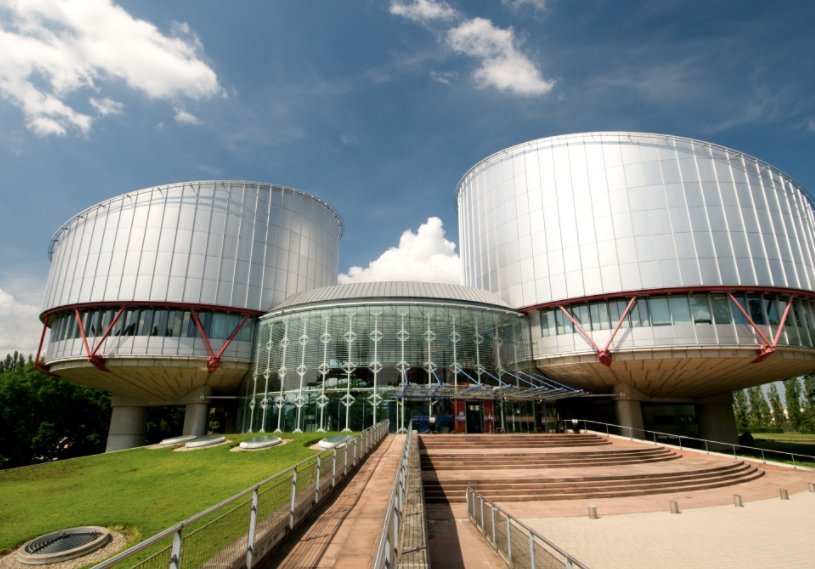
Nov 28, 2019 | Cases, News
The ICJ and Amnesty International have submitted a joint third party intervention before the European Court of Human Rights in the case of Judge Jan Grzęda.
Judge Grzęda’s mandate as a member of the Polish National Council of the Judiciary (NCJ) was prematurely terminated by legislation that entered into force in 2018. Under this law, the mandates of the judicial members of the NCJ appointed under previous legislation were automatically brought to an end once new members were appointed.
Judge Grzęda applied to the European Court of Human Rights alleging that he had been denied access to a tribunal to challenge the termination of his mandate and had been denied an effective remedy for the violations of his rights.
In their third party intervention, the ICJ and Amnesty International analyze international standards on judicial independence and self-governance, including as regards the role national councils for the judiciary, and the consequences of these standards for the right of access to court under Article 6.1 ECHR. The intervention also analyses the role of the NCJ in safeguarding judicial independence in Poland, and recent legislative and policy developments that have seriously undermined the independence of the Polish judiciary.
Read the full intervention text here.







